Curry is the name of a mixture of aromatic spices in a combination of 5, 7, 13 or more in number. The ratios between the spices and their quantities depend primarily on the dish that is prepared with the aromatic mixture. The most common ingredients in curry powder include turmeric, ginger, black pepper, coriander, cumin, cinnamon, cardamom and cloves, as well as fenugreek, nutmeg, cayenne pepper, paprika, etc.
The roots of curry can be traced back to Indian cuisine, where it is believed to have originated. Today, however, this aromatic mixture is used even more in Asian and South American cuisine. The name Curry also refers to the dish with sauce, prepared with the spice of the same name.
The most diverse curry recipes are found in the kitchens not only of India and China, but also of Mexico, Thailand and the Antilles. In fact, each curry blend has its own distinct identity that complements and completes the culinary magic of the main ingredients used to prepare the dish – meat, fish, chicken, vegetables, rice, beans, etc.
An old tradition in Japan requires curry to be consumed 125 times a year and in the country it is most often combined with rice and pickled vegetables. In British cuisine, curry is called meat sauce, which mainly consists of garlic and ginger.
The truth is that there is no standard recipe for the combination of ingredients when making curry. There are many variations – hot curry, sweet curry, Malaysian, Thai, Madras, Indian, Ceylon, etc.
Curries sometimes contain more than 30% black pepper, cinnamon, cloves, coriander, ginger, allspice, fenugreek, paprika, cardamom, nutmeg, cumin, turmeric, cayenne pepper. One of the unwritten rules when preparing the aromatic mixture is that the main spices in it should be 90% and the auxiliary 10%.
Curry has a deep yellow color and a completely unique aroma that you can't go wrong with. It mainly gives dishes a spicy taste, but at the same time it is also a faithful assistant for human health, having a number of benefits. In practice, curry is universal and can be added to all dishes. In addition, this spice helps the body digest food much faster.
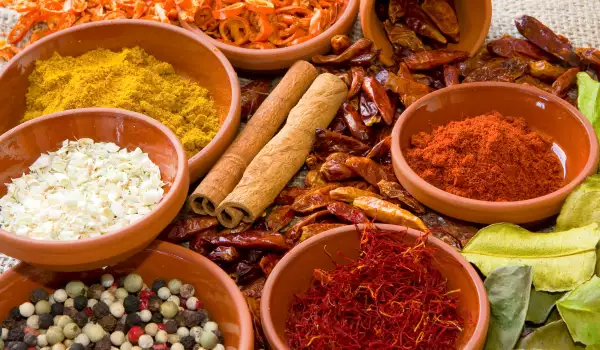
Ingredients of the curry
100 g of curry powder contains: 325 calories, 12.66 g of protein, 58.15 g of carbohydrates and 13.81 g of fat. The exotic spice does not contain any cholesterol, and the level of sodium is 52 mg and 1543 mg of potassium. Curry contains significant amounts of vitamin A (986 IU), E (21.99 mg) and K (99.8 mg). In 100 g of curry there are 29.59 mg of iron, 592 μg of beta carotene, 254 mg of magnesium, 349 mg of phosphorus, 478 mg of calcium, etc.
Curry selection and storage
When choosing curry, a ready-made mixture, make sure that its color is deep yellow, with a brick shade and a homogeneous structure. Packaged spices pretty much guarantee you this, but there are some risks when you buy curry, which is sold in large quantities - sometimes it's wet and granular, which is not desirable. Store curry powder in glass jars that are tightly sealed and not exposed to moisture. Curry powder and garam masala have a shelf life of about 4 months.
Culinary application of curry
Curry is widely used and whether it is vegetarian or meat, the dish, with curry it becomes much tastier. This seasoning can go well with your roast pork, beef or veal, fish specialties, dishes with vegetables and legumes - beans, lentils, etc. By adding curry to ready-made mayonnaise or ketchup you will get an interesting variation on these classic sauces.
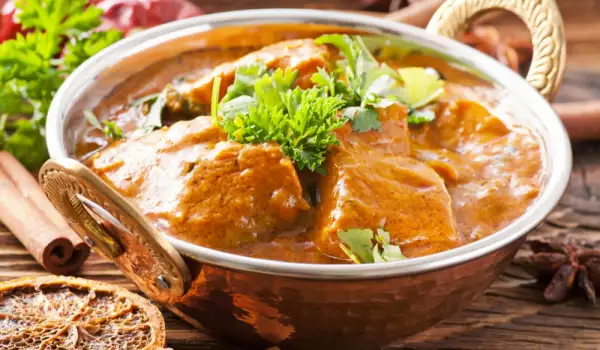
Different curry recipes also follow different combinations of spices and amounts. In order to enhance the aroma of some of them, they are first lightly fried in a pan without burning, then they are ground for a long time in a mortar with the other ingredients. The prepared curry mixture can be mixed with wine vinegar and oil into a thick paste and stored in a jar.
Getting the spice ratio right in a curry is quite a delicate task. For a curry dish for 4 people, about 1-2 tbsp. of the spice mix are enough. Do not overdo it, so that the taste of the food does not become too intrusive and bitter.
If you want to prepare the Malaysian curry, the special thing is that you have to add lemon plant because of the tart taste. Thai curries are widespread and their culinary magic shines through in lighter flavored dishes. And if you add curry and a little sugar to tomato sauce, you get an amazing ketchup. A standard curry contains a large amount of onions, carrots and potatoes. Apples or honey are often added for a slight sweetness. You could make curry paste yourself at home and for this purpose we have the following recipes for you:
Madras Curry
80 g coriander, 20 g turmeric, 20 g paprika, 20 g black pepper, 20 g mustard seed, 10 g ginger, 10 g garlic powder, 10 g cumin, 40 g salt;
Spicy curry
70 g coriander, 50 g hot pepper, 10 g of fenugreek, 2 g of black pepper, 5 g of cumin, 2 g of turmeric;
Sweet curry
50 g coriander, 20 g turmeric, 10 g cumin, 10 g ginger
You can use ready-made ground spices, or you can toast them lightly in a pan, then crush or grind them.
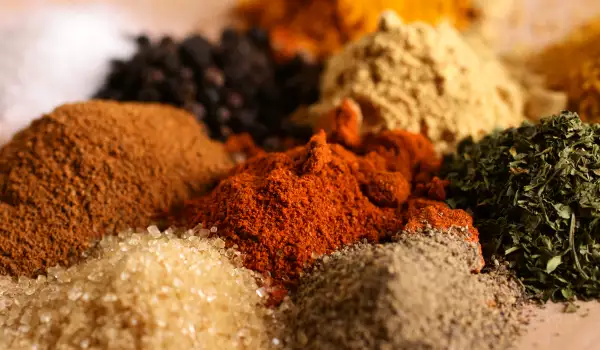
Benefits of curry
By eating curry dishes regularly, you will bring delight to your senses and health to your body at the same time. Among the health benefits of curry is the overall stimulation of the immune system and cleansing the body of toxins. At the same time, you will not accumulate extra weight. The substance curcumin, which is contained in turmeric, which is an indispensable part of curry, prevents the formation of fats and expels harmful cholesterol from the body.
Scientists believe that the ingredients in curry aid chemotherapy sessions by killing cancer cells that do not die from the therapy. Experts are adamant that people who eat curry two or three times a week are exposed to less danger of dementia and risk of developing Alzheimer's.
Turmeric in the composition of the curry has anti-inflammatory and antioxidant properties that help in the fight against serious diseases. A component of curry spice may protect the liver from cirrhosis. With curry, we can reduce the risk of cardiovascular diseases, which is mainly helped by spicy curry. It has the ability to lower cholesterol levels and block the action of a gene that causes arteries to constrict and restrict blood flow to the heart and other organs.
These benefits are due to capsaicin, which is a component of hot peppers and spiicy curry respectively. The spicy ingredient helps prostate and pancreatic tumors, works well as a pain reliever and helps treat asthma, colds and flu. The consumption of curry leads to overall warming in the body, which leads to the production of a large number of endorphins - the hormone of happiness.
Curry spice is often used in Asian recipes, but not only. Curry is part of the list of spices and herbs rich in antioxidants and compounds that help the body function optimally. Curry is used to naturally treat a number of serious ailments and can be consumed in a variety of ways.
Here are more benefits of curry:
It has anti-cancer effects
Because of the compounds in curry, the spice may have significant anti-cancer effects. All studies show that moderate curcumin supplementation per day for 30 days reduces the chances of inflammation and cancer cell development.
Protects the heart
High levels of cholesterol and triglycerides can increase the risk of developing heart disease. Regular consumption of curry can help reduce risk factors and can improve heart health.
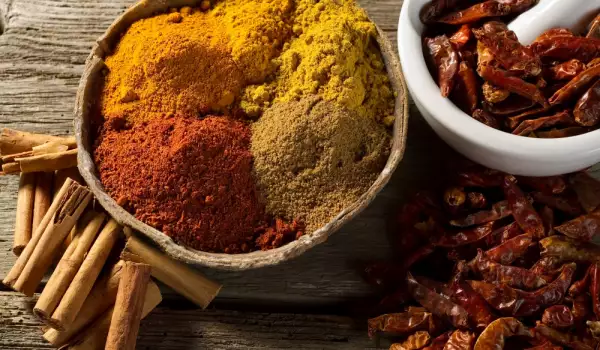
It has antibacterial properties
Curry leaf extract inhibits the growth of harmful bacteria such as Corynebacterium tuberculosis and Streptococcus pyogenes.
Improves the digestive system
Curry contains spices like turmeric, ginger and cinnamon that improve the digestive system and help it function better. Consumed in moderation, according to expert advice, curry can be a natural remedy for constipation.
Helps maintain a healthy weight
The powder, along with a balanced diet, can support healthy weight loss. Curry facilitates digestion and fat burning, speeds up metabolism and along with a healthy lifestyle can help you achieve your desired weight.
Harms from curry
Curry is an extremely healthy mixture of spices and has no serious side effects. People with more sensitive stomachs may experience discomfort after consuming curry. The cayenne pepper in curry can cause an exacerbation of ulcers or gastritis, so people with these health problems should be a little more careful.
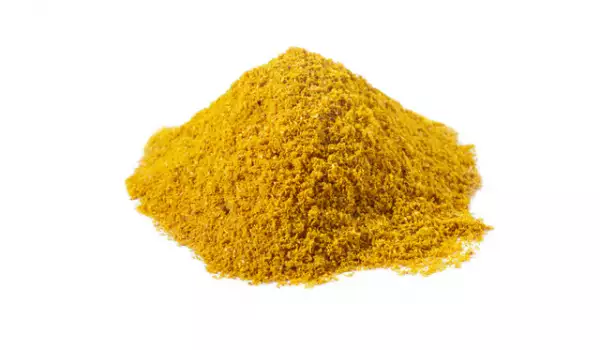

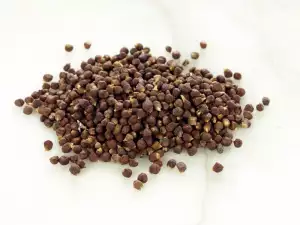
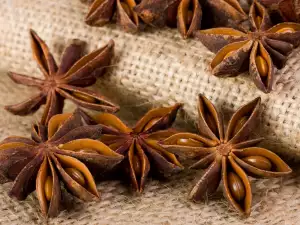
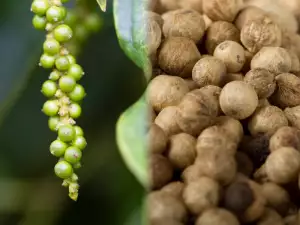
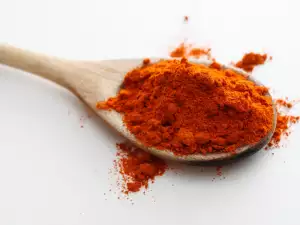
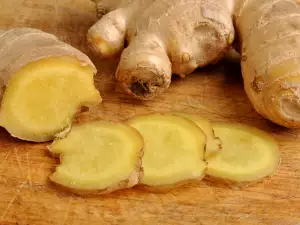



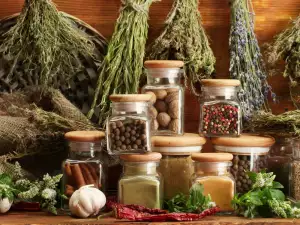

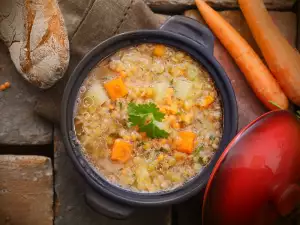
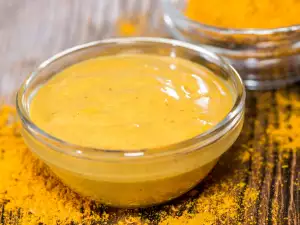






Comments